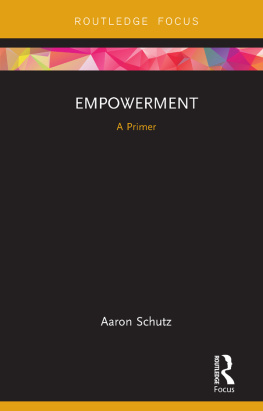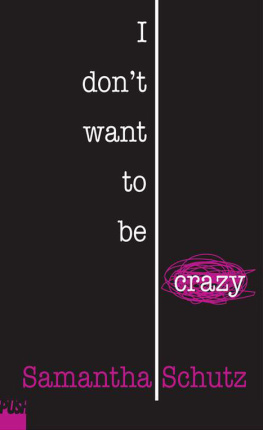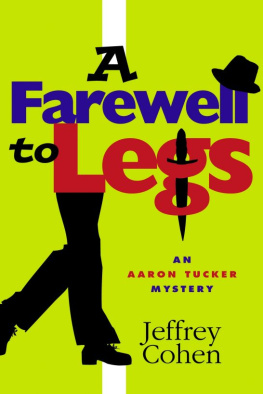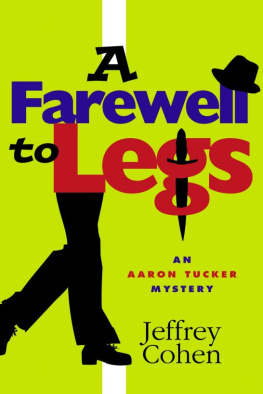Empowerment
This book provides an interdisciplinary examination of the multiple meanings of empowerment. Rather than seeking to define and critique this term, it draws out a range of different meanings, exploring diverse possibilities for action and engagement.
We must carefully examine the possibilities and limits of the approaches to empowerment we choose. Efforts focused on building individual skills and capacities, for example, may overlook opportunities for supporting more collective, community-based forms of social action. In concise chapters, the book maps out a range of ways that people can be empowered along different continuums of power, moving from more familiar forms of teaching and counselling to less common and more radical strategies for fostering solidarity and civil resistance.
This text will be of great interest to advanced students and scholars in a wide variety of fields, particularly social work, public health, sociology, education, and international development as an introductory yet comprehensive study of the nuances of empowerment.
Aaron Schutz is a Professor at the University of Wisconsin-Milwaukee. His research focuses on democratic theory and collective action for social change. He has worked with a range of community groups on community organizing projects. He has published numerous articles and three other books.
First published 2019
by Routledge
2 Park Square, Milton Park, Abingdon, Oxon OX14 4RN
and by Routledge
52 Vanderbilt Avenue, New York, NY 10017
Routledge is an imprint of the Taylor & Francis Group, an informa business
2019 Aaron Schutz
The right of Aaron Schutz to be identified as author of this work has been asserted by him in accordance with sections 77 and 78 of the Copyright, Designs and Patents Act 1988.
All rights reserved. No part of this book may be reprinted or reproduced or utilised in any form or by any electronic, mechanical, or other means, now known or hereafter invented, including photocopying and recording, or in any information storage or retrieval system, without permission in writing from the publishers.
Trademark notice: Product or corporate names may be trademarks or registered trademarks, and are used only for identification and explanation without intent to infringe.
British Library Cataloguing-in-Publication Data
A catalogue record for this book is available from the British Library
Library of Congress Cataloging-in-Publication Data
A catalog record has been requested for this book
ISBN: 978-0-367-23321-1 (hbk)
ISBN: 978-0-429-27932-4 (ebk)
Typeset in Times New Roman
by codeMantra
In recent decades, efforts to promote empowerment have sprung up in an increasingly diverse collection of human service arenas and across the social sciences. Areas include:
The term is widely used as a buzzword. But what does it mean to empower?
In the simplest sense, the word brings together the Latin root em-, meaning to put in or into, bring to a certain state, So, empowering, in a very general sense, means enabling an individual or a group to do something. What exactly is enabled, however, varies quite radically across fields, contexts, situations, and the like. In fact, there are growing complaints that the term is used so vaguely that it often doesnt mean much at all, becoming a kind of generalized, unanalyzed, unalloyed good.
This brief text does not seek a single definition of empowerment, nor do I believe there is one to be found. Instead, I map out a range of ways that people can be empowered.
The text does have a bias. While there is no correct answer to the question of empowerment, I am critical of the way the term has lost its early, more radical meanings. As is common with concepts like this, it has become tempered over time as more palatable definitions have been embraced by the status quo. While I do not mean to tell people in particular situations what they should do, I focus readers on the importance of at least considering more collective and conflictual forms of empowerment that are closer to its earlier uses. My point is not that more revolutionary visions are always relevant, but that they increasingly tend to be ignored in favor of approaches that dont rock the boat. One goal of this text is to reinvigorate these earlier conceptions of empowerment, making it more difficult for people to use the term in a facile way that avoids at least acknowledging more radical understandings.
In this introduction, I begin by laying out the history of the uses of empowerment over the last few decades in the social science and human service fields. Then I discuss the tensions of the very idea of empowering other people before turning to a general overview of the layout of this book.
The history of empowerment: the journey from radical collective action
Empowerment emerged out of the reverberations of the social movements of the 1960s and first appeared in the context of various social protest movements. From its beginnings
theories of empowerment that developed in the United States [were] anchored in a philosophy that [gave] priority to the points of view held by oppressed peoples, enabling them not only to express themselves, but also to gain power and overcomedomination.
By the 1980s, the term was used to inform research and intervention concerning marginalized groups such as African Americans, women, gays and lesbians, and people with disabilities. the most radical aspects of the long 1960s had faded by 1980. During the conservative resurgence of the Reagan revolution, the cooption of the term had already begun as it was absorbed by institutions and service fields.
Understandings of empowerment have drawn from a range of texts and scholarly traditions beyond and alongside these shifts including Freudian psychology and Gandhis practice of nonviolent social action. However, Paulo Freires Pedagogy of the Oppressed, appearing in English in 1968, is broadly recognized as a key touchstone. An adult educator, Freire told the story in Pedagogy of his efforts to develop critical consciousness among peasants in Latin America. Instead of a banking form of learning, which involved pouring knowledge into students and clients heads, this was a dialogic approach, where students and teachers learned along with each other. Freires work came together with the civil rights movement, the many power movements, the second-wave womens movement, and more, joining long-standing progressive traditions of active learning in education and elsewhere. Empowerments early explicitly socio-political connotations were reflected in Pedagogys final chapter, which explored how Freires ideas might be used to inform an authentically democratic national revolution.
Following a similar process at different times in different fields and locations, the work of people in status quo institutions progressively blunted the radical edge of the term. The history of Freire himself is paradigmatic. He became enormously famous in the field of education and beyond after the publication of











